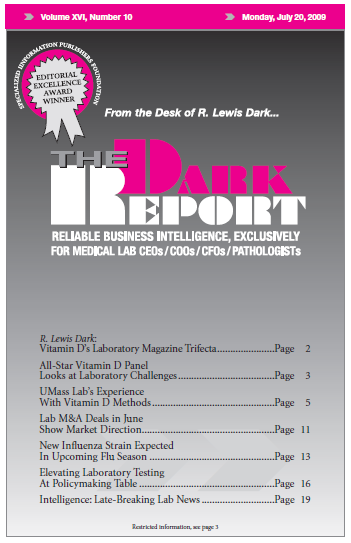CEO SUMMARY: Despite a dismal economy, the month of June spawned two interesting merger/acquisition transactions in the lab testing industry. In one case, a blood brother gobbled up a specialty diagnostics company. In another transaction, two cross-town neighbors in Kansas City merged to form an enhanced specialty diagnostics laboratory company. The common theme behind both …
Lab M&A Deals in June Show Market Direction Read More »
To access this post, you must purchase The Dark Report.


